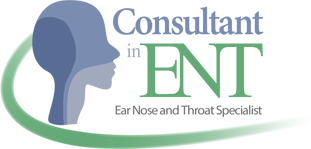Dizziness & Balance

We balance using many different sensory inputs – from our ears, eyes and sensory fibres in our joints, ligaments, muscles and tendons, called proprioception. Millions of neurons are involved in making sense of this information and if any aspect of the balance pathway is disrupted, we feel symptoms that range from a disassociated, foggy sensation to profound vertigo with associated vomiting.
Conditions
BPPV
Benign Paroxysmal Positional Vertigo (BPPV) is the commonest cause of vertigo. Each episode typically lasts less than a minute in response to head movements such as rolling over in bed or looking up at a top shelf. It can be very disruptive. Most are easily treated with the Epley manoeuvre, which can be performed at the same time as your initial consultation.
Meniere's / Endolymphatic Hydrops
The classical symptoms are episodes of profound vertigo associated with fluctuating hearing, tinnitus and pressure sensation in one ear. However, there are variable combinations of symptoms due to microscopic volume changes in different parts of the balance and hearing inner ear apparatus (endolymphatic hydrops).
Mr Harris has a special interest in inner ear disease and Meniere’s. With his colleagues, he has developed a way of detecting the fluid changes on MRI and some of Mr Harris’s patients have taken part in an international multi-centre trial investigating the use of slow release steroid which is injected in to the ear. For patients who fail to respond to conservative management, an operation to block the endolymphatic duct appears to be successful in stopping vertigo attacks for over 90% of patients.
Vestibular Neuronitis (Acute labyrinthitis)
Characterised by sudden profound vertigo, often with associated vomiting that lasts for days and typically eventually fully recovers after weeks and months with balance therapy. Emerging evidence that steroid tablets may help.
Acute audio-vestibular failure
Characterised by sudden profound vertigo and unilateral hearing loss, often with associated vomiting that lasts for days. The balance typically recovers after weeks and months with balance therapy, but the hearing may not. Urgent medical attention should be sought. Further investigations may be necessary and steroid tablets and injections into the ear may help.
Altered proprioception
Changes in the musculoskeletal system such as arthritis of the neck can lead to vertigo.
Visual vertigo
Sometimes vertigo is caused or exacerbated by busy places such as a railway station or supermarket, or long hours looking at a monitor.
Migrainous vertigo (+/- efferent pathway innere ear suppression)
Vertigo associated with migrainous headache, light aversion (photophobia), sound aversion (phonophobia) and visual or other auras. It can present with symptoms similar to Meniere’s. Usually responds well to migraine treatment.
Central Nervous System causes
Central Nervous System causes such as brain tumour, vestibular schwannoma, stroke or demyelination need to be excluded.
Anxiety
There is a close association of psychological disturbance and dizziness. Dizziness leads to fear of falling and anxiety, depression, phobic avoidance and panic disorder. Taking care of the social and psychological aspects of dizziness is an essential part of successful treatment.
Vestibular decompensation
You may have had acute vestibular failure in the past but find there are times and situations when dizziness recurs.
Basilar type migraine
Migraine associated with difficulty speaking (dysarthria), ringing in the ears (tinnitus), double vision (diplopia), difficulty walking (ataxia), numbness (parasthaesia)
Medical causes
Vaso-vagal syncope (commonest cause of fainting), drug-related side effects arrhythmia, electrolyte & fluid disturbance, anaemia etc need to be excluded. Urgent medical attention should be sought if there is transient loss of consciousness, shortness of breath, palpitations or chest pain.
Disclaimer: This publication is designed for the information of patients. Whilst every effort has been made to ensure accuracy, the information contained may not be comprehensive and patients should not act upon it without seeking professional advice.



